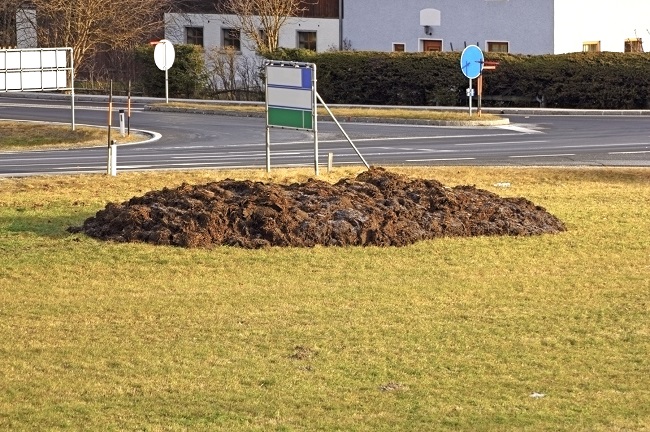
When composting or using a composted material, there are “winners” and “losers.” The winners are those receiving the compost, while the losers are those who provided the materials for generating the compost. Why is that?
A simple example can be drawn from the homeowner/gardener who collects his lawn clippings for composting, with the generated compost for either adding to his garden soil or for use as mulch around his landscape plants. Removing the lawn clippings will deplete the soil of those elements in the clippings, elements essential to sustain the continued growth of the lawn grass. Therefore, the need to replace that taken away which is done by periodically liming [correcting soil acidity and adding calcium (Ca) and magnesium (Mg)] and applying yearly a nitrogen, phosphorus and potassium (NPK) lawn fertilizer. The lawn clippings when composted will be reduced in organic matter content, thereby concentrating the elements it contains. When added to a garden soil, it acts as a fertilizer since it contains most of those elements essential for plants (as was required by the lawn species) which can be viewed as a plus. Depending on the elemental content of the added compost, the level of those compost-containing elements will begin to increase in the garden soil, the rate of increase depending on the amount and frequency of application of the compost as well as the cultural practices being used to manage the garden soil. The two major mineral elements in the grass clippings will be phosphorus (P) and potassium (K), their concentration in the compost increasing with the degree of decomposition. There is the possibility that the garden soil will begin to increase in its P and K content, with the potential of reaching excessive levels.
An organic gardener began applying to his vegetable garden soil, compost whose major component ingredient was chicken litter. Plant growth and product yields were impressive. So, each year, the gardener mixed into his garden soil this same compost. After several years of excellent product yields, they began to decline, and visual symptoms of plant stress appeared on many of his vegetable plants. Seeking advice from his local County Agricultural Extension Agent, the gardener was advised to collect a soil sample and leaf tissue samples from his garden plants for elemental analysis. The soil and plant analysis laboratory results were given to me for interpretation. For the soil, several of the elements, primarily P and K, were at excessive levels. The plant analysis results reflected the effects of these high P and K soil test levels as elemental imbalances in the plants. With such high soil P and K levels, as well as several other elements, my recommendation was to abandon the site and begin over at another, not the kind of advice he expected. I also recommended that the compost he was using be analyzed for its elemental content, so that the amount to be applied to his garden soil would not result in an excess accumulation of elements, such as P and K.
For many gardeners, composts are valuable substances that, when added to a soil, will alter the physiochemical properties of the soil, and thereby improve plant growth. It is also a factor that would enable identification of the produced product as being “organically-grown.” Unfortunately, there is a cost to be paid that falls on the provider of the materials being composted. For example, if animal manure is a major ingredient composted with other organic materials, its field collection would mean that the dropped manure would not be adding back to the soil the elements that had been collected by the grazing animal. If the manure is taken from an animal being fed grain and hay in a confined facility, then the soil in which these feed materials had been grown will be depleted of the nutrient elements that were required for their production. Therefore, the farmer managing the pasture for grazing and the grower of hay and grain, will be the ones who will have to add back what has been taken away.
One of the ironies is that those who benefit from the organic side of the equation are contributing to the chemicalization of farming practices. That is something to think about, an unexpected consequence. The gathering of any form of organic material depletes the nutrient element status of the collection site, while there is the potential of increasing the elemental status of the received site to an excess level.
Dr. J. Benton Jones, Jr. has a PhD in Agronomy and is the author of several books. Dr. Jones has written extensively on hydroponic growing and outdoor vegetable gardening employing sub-irrigation hydroponic growing systems.
Related Articles & Free Email Newsletter Sign Up
Before Buying a Chemical Fertilizer – READ THE LABEL!
Phosphorus is Needed by Plants But Too Much Hurts More Than it Helps




Comment here